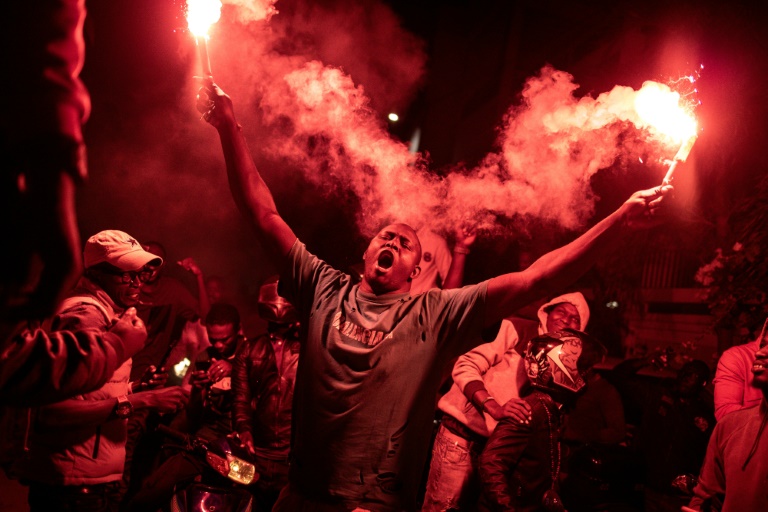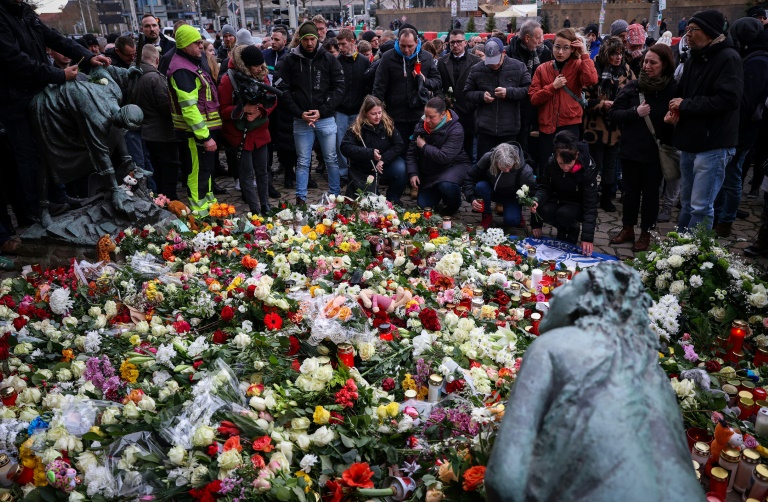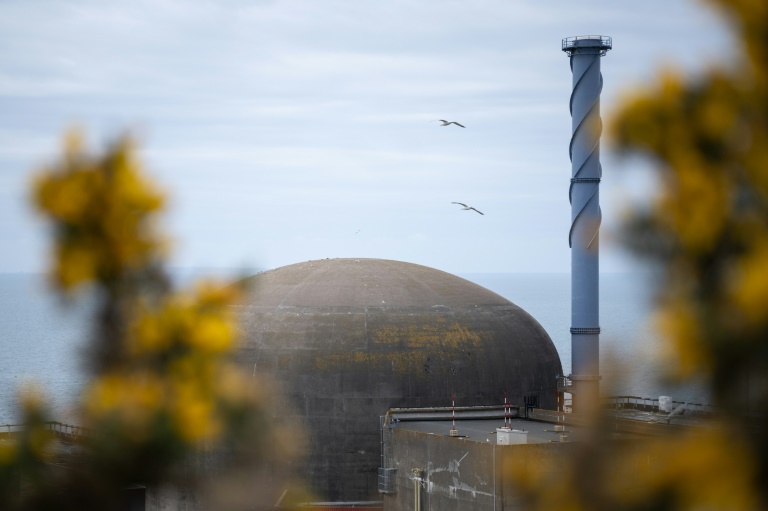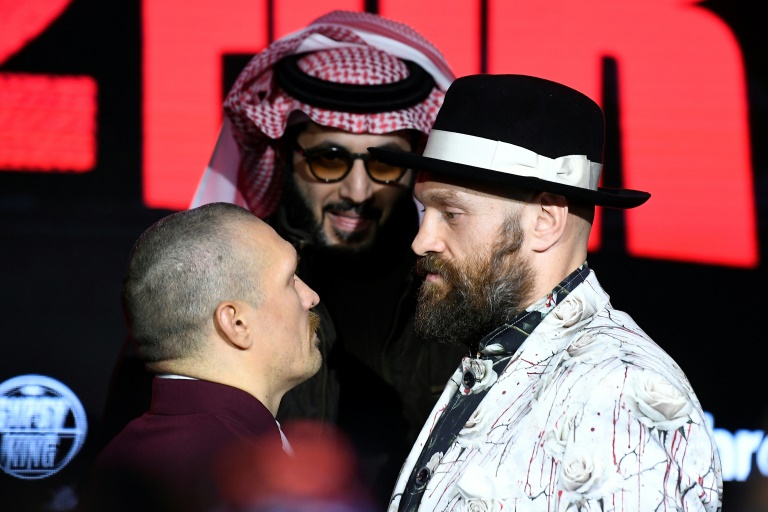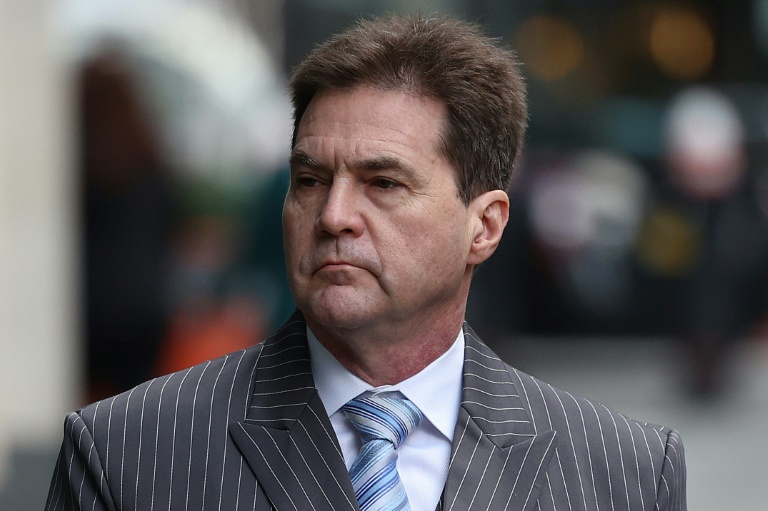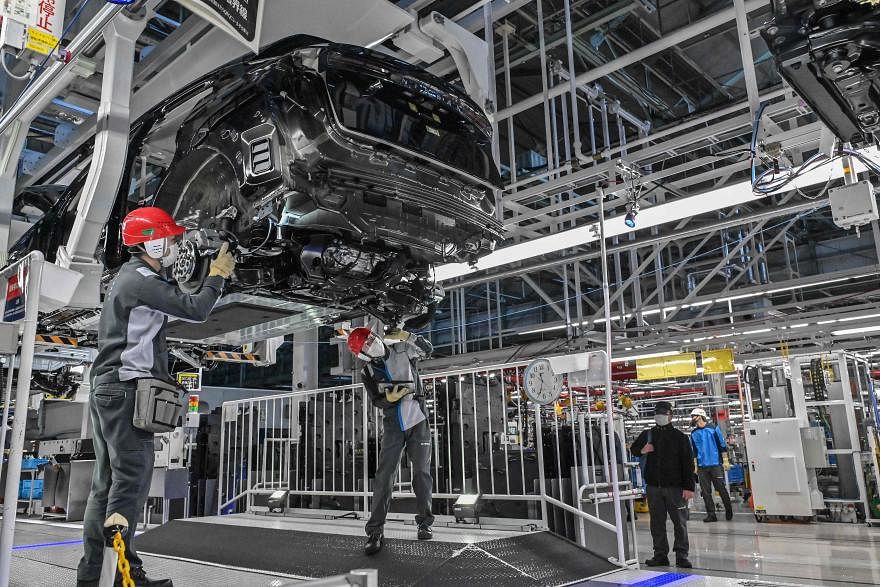Senegal waited Friday for key opposition figures Ousmane Sonko and Bassirou Diomaye Faye to take their place on the presidential campaign trail, after their release from prison sparked jubilant scenes 10 days before the key vote.
Thousands thronged the streets of the capital Dakar in the early hours between Thursday and Friday, singing and dancing as the two men were driven away from the city’s Cap Manuel prison.
Anti-establishment firebrand Ousmane Sonko, 49, who was at the centre of a two-year stand-off with the state and disqualified from running in this vote, remained largely out of view.
His deputy and endorsed replacement in the presidential ballot, Bassirou Diomaye Faye, briefly addressed the crowd through the sunroof of his car.
Smiling and raising his arms to the sky after almost a year behind bars, the 43-year-old Faye praised the “support and solidarity” of his followers.
“Tomorrow (Friday) we’ll hold a press conference. We’ll tell you tomorrow where it will be held and where our caravan will set off,” he said, referring to his campaign convoy due to travel the country ahead of the March 24 election.
Faye and Sonko benefitted from an amnesty law passed by MPs last week.
It had been proposed by outgoing President Macky Sall with the aim of easing tensions after three years of unrest, reignited last month by his last-minute postponement of the presidential vote.
The law was officially published after days of speculation and “it is because it has been promulgated (that) they have come out,” said Yoro Dia, a presidential spokesman.
The impromptu rally after the release of Sonko and Faye was the largest for any of the 19 candidates since campaigning began on March 9.
It is an indication of the popularity of both men, particularly Sonko who is not even in the race for the top job.
Their release is now likely to dramatically alter the run up to the election.
Faye has so far been unable to address voters in person and his imprisonment prevented him from recording a campaign message to be aired on public television.
But his coalition kicked off the campaign without him, pitching Faye as the candidate for “system change” and “left-wing pan-Africanism”.
The opposition figure has promised to reclaim Senegal’s sovereignty and renegotiate oil and gas contracts, as well as defence agreements if elected.
Faye’s manifesto reflects the themes which have made Sonko popular, including attacks on corruption, elites, multinationals and former colonial ruler France.
The legal case against Sonko, along with economic and social tensions and concerns about whether Sall would run for a third presidential term, led to deadly unrest between 2021 and 2023.
But his last-minute decision to defer the February presidential vote and try and push it back to December sparked clashes that left four dead.
Bouts of unrest since 2021 have killed dozens and led to hundreds of arrests.
Sonko has been a divisive figure in the turmoil.
He was jailed at the end of July on a string of charges, including provoking insurrection, conspiracy with terrorist groups and endangering state security.
His political party was also dissolved.
Sonko was disqualified from running in the 2024 presidential election, but his camp endorsed his deputy, Bassirou Diomaye Faye, to stand in his place.
Faye was imprisoned in April 2023 charged with contempt of court, defamation and acts likely to compromise public peace after posting a message critical of the justice system.
AFP
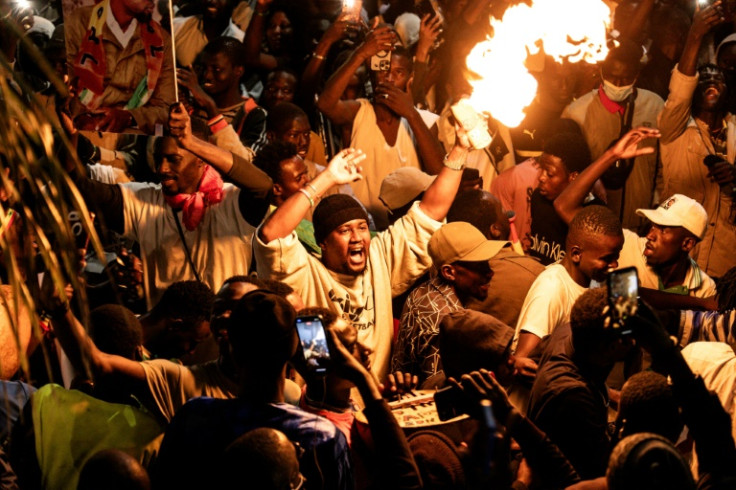
AFP

